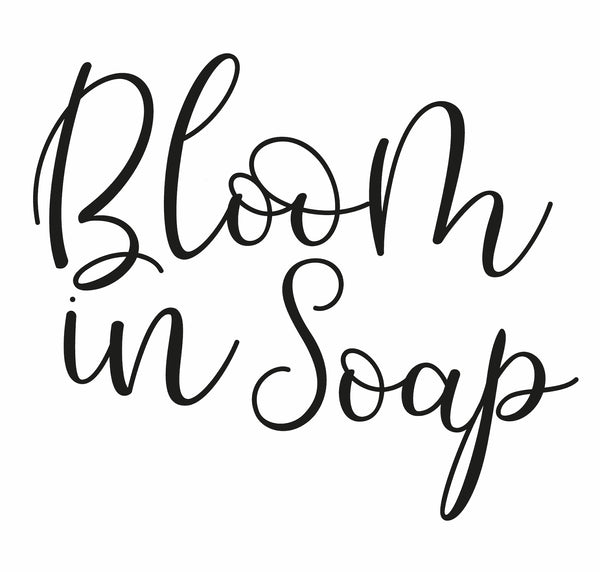
Are preservatives needed in skincare?
Share
Preservatives are often a hot topic of debate in the skincare world. Are preservatives really needed in skincare and haircare products? Are they safe? Do they have an impact on the environment? In this blog post, we'll answer these questions (and more) and share tips on how to keep your skin safe and healthy.

Why do we need preservatives for skincare?
We're used to seeing preservatives in our food - all processed foods (bread, cakes, ready-made meals etc) will only last a few days before they begin to grow mould. To keep these foods fresh for a longer period of time preservatives are needed. It's the same reason why we need preservatives in cosmetic products.
Preservatives prevent the growth of mould, yeast, and bacteria - and nobody wants to put bacteria-infested cream on their face! When mould grows on a skincare product it's easy to spot - mould can be green, white, yellow, black, or even furry - and its appearance will definitely put you off using it. Bacteria, on the other hand, is invisible to the naked eye and that's why it's so important that preservatives are included in skincare formulations - to keep you safe.
Any water-based skincare product (ie, any product made with water) MUST include a preservative to extend its shelf-life and to prevent it from growing mould (or even worse, bacteria).

What about oil-based cosmetics?
Anhydrous products such as our oil-based whipped body butters and cleansing balms do not usually require the use of a preservative. However, if these products are used in the warm, damp, humid environment of a bathroom (as they often are) this will provide the optimum environment for mould and bacteria to thrive.
That's why it's SO important not to introduce water into the packaging of these products. We've all done it - dipped our fingers into a jar of body butter after having a bath or shower - and that's how water finds its way in. And where there's water, there's the potential for mould and bacteria growth. Sp always use a clean, dry finger or a spatula to apply preservative-free products.

What about shampoo and conditioners?
To prevent the growth of mould and bacteria, haircare products such as shampoo and conditioner bars should ideally include a preservative. Why? Because they're designed to be used in the shower or bath. Makes sense, right? That's why we use Preservative Eco in our solid shampoo bars. It's natural, ECOCERT and COSMOS approved and free from parabens, phenoxyethanol, isothiazolones and formaldehyde - ingredients typically used in preservatives.

Are preservatives safe? And skin care preservatives to avoid
There are lots of different preservatives used in cosmetic products and many of them are based on toxic substances. Some of the preservatives you should avoid include:
-
Parabens - these disrupt hormones and have been linked to breast cancer. A study carried out in 2010 concluded that parabens are included in 44% of skincare products on the market. Scary, eh?
-
Formaldehyde and formaldehyde-releasing preservatives - Diazolidinyl Urea is one such preservative to avoid thanks to its carcinogenic properties and skin allergies and irritability.
-
Isothiazolones - preservatives containing Isothiazolones are known to be skin sensitizers (be very careful going outside in the sunshine after applying products containing this), and may cause skin allergies.
Thankfully, some preservatives are considered safe, and there are many ECOCERT and COSMOS-approved preservatives accepted in natural and organic skincare. Phew!

Do preservatives have an impact on the environment?
Everything we use on our bodies eventually gets washed down the plughole and seeps into the environment. Many cosmetics contain preservatives that are harmful to our environment and aquatic life; in fact, chemicals from cosmetics have been found in our rivers, oceans, soil, and even our water supply. So how can we stop this?
When purchasing shampoo, face creams or any cosmetic product, choose greener products. Products that come with eco credentials, products made with natural ingredients, and products that are made with preservatives accepted in natural and organic skincare formulations. Not sure how to spot eco preservatives? Any company using an ECOCERT or COSMOS-approved preservative will be shouting about it.

Tips!
-
ALWAYS BIN any skincare or haircare product that is either out of date, or has been open for longer than the POA (period of opening) symbol on the packaging.
-
ALWAYS wash and thoroughly dry your hands before dipping your fingers into a jar of body butter, cleanser, or when using a face mask. Use a spoon or spatula when scooping the product out of its jar to prevent infecting the product with bacteria.
-
Keep lids tightly sealed on cosmetic products to prevent contamination from air and water.
-
Store your cosmetics in a cool, dry place - never store them in a hot and humid environment.
Does soap need a preservative?
Our natural soap isn't made with a preservative because the PH of soap is too high for mould and bacteria to grow. However, just to be safe always store your soap in a cool, dry place to keep it at its best.

